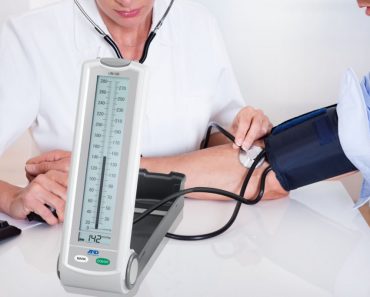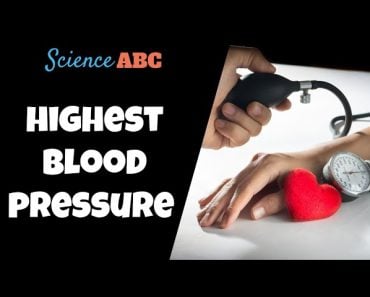Prof. Alexander Niculescu and his team developed a panel of 95 biomarkers, known as BioM-95, measured from blood. With the biomarker panel they developed, they have given clinicians the ability to predict high or clinical levels of anxiety in patients, thus providing a more objective way of diagnosing anxiety disorder.
Have you ever tried to tell someone that you’re feeling anxious, but struggled to describe “how” anxious? You could be speaking to a family member, a friend, or a professional. No matter who it is, it is often impossible to describe the sheer range of your feelings. Wouldn’t it be great if someone could just see it for themselves, like they do with simple blood sugar or blood pressure levels?
Well, this is exactly what went through the minds of a professor and his research team at Indiana University School of Medicine. Here’s how they solved the problem. But first, what is the problem?
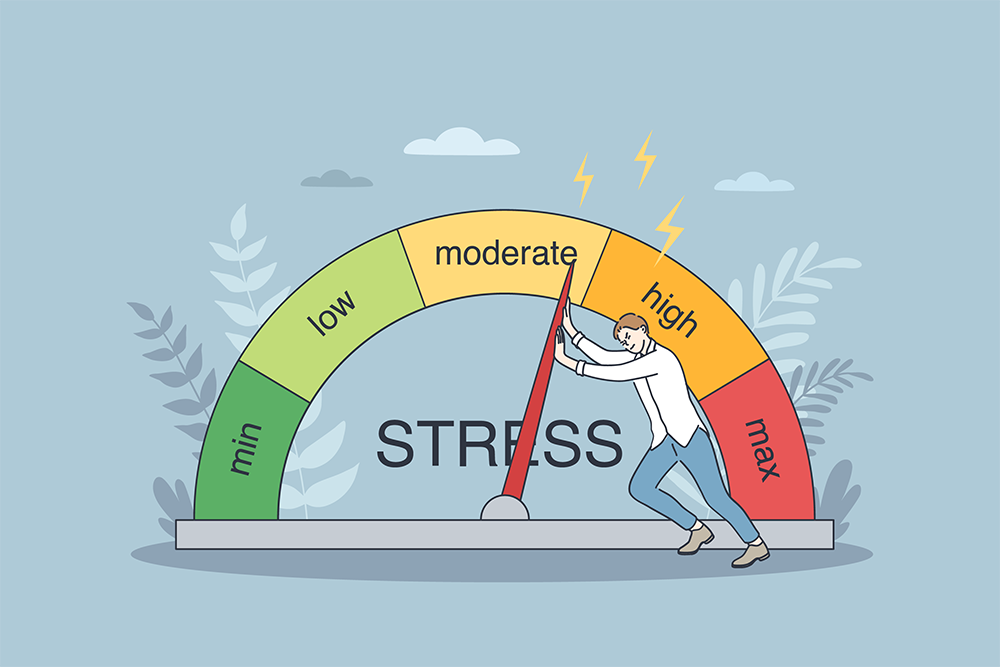
Recommended Video for you:
What Is Anxiety?
Anxiety is an emotion characterized by feelings of tension, worried thoughts, and physical changes, such as increased blood pressure, as defined by the American Psychological Association. As an emotion, anxiety is something everyone experiences. Since it is very similar to fear, it can even be a protective response.
For example, if you’re crossing a busy street, you will experience some amount of anxiety or fear. Your heart rate increases slightly, and your brain drowns out other stimuli to focus fully on the traffic. Subconsciously, your body undergoes these changes to ensure that you cross safely.
Is Having Anxiety A Medical Illness?
The mere experience of anxiety is not a disease. Anxiety helps everyone cope with particular challenges. However, when your anxiety interferes with your ability to cope and continues to persist over long periods, it becomes pathological anxiety.
Moreover, pathological anxiety or anxiety disorders will also cause you to develop a fear of anxiety itself. This vicious cycle eventually causes various complications, including developing high blood pressure, gastric ulcers, insomnia, and depression. Therefore, it becomes crucial to diagnose and treat it early to prevent any such complications. The question is, how do you diagnose it?
Can You Measure Anxiety?
Measuring anxiety or any other emotion is tricky. It is subjective, as one person’s perception of any emotion will never be the same as another. It would be like marking anxiety on a scale of 1 to mangoes!
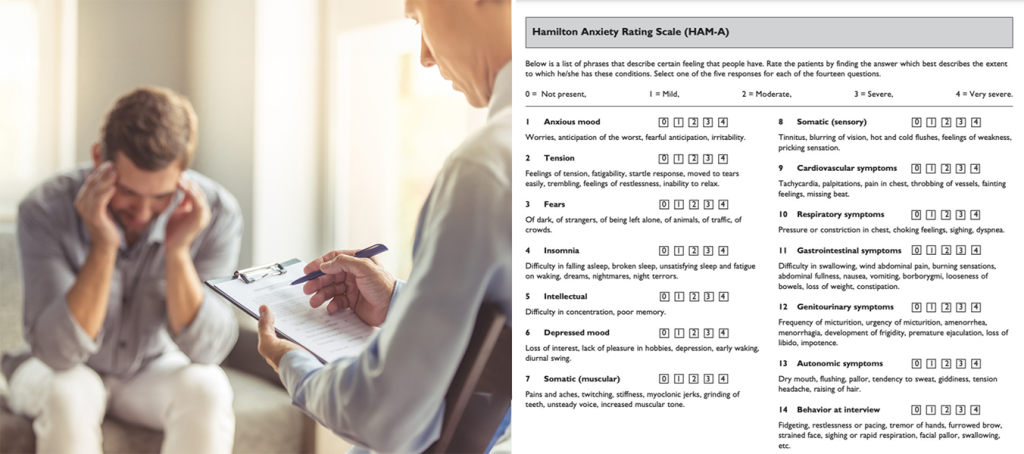
Clinicians were only able to get a rough idea of anxiety levels based on carefully designed questionnaires. Physical symptoms associated with anxiety were easier to note, but very often, patients with anxiety disorders come to experts long after the anxiety episodes have passed. Hence, these symptoms don’t get measured at the right time.
Unfortunately, for the longest time, it seemed that we simply could not put a number on anxiety.
Quantifying Anxiety
However, a pathbreaking study published in the journal Molecular Psychiatry revealed that anxiety could be measured from blood. Prof. Alexander Niculescu, MD, Ph.D., a professor of psychiatry at Indiana University School of Medicine, has spent his life trying to measure the unmeasurable.
He has thus far developed various methods to measure pain, bipolar disorder, and even post-traumatic stress disorder from blood. To face the challenge of measuring anxiety, one of the most common mental health illnesses, there was no one more suited to the task.
A Simple Solution To A Complicated Problem
Niculescu and his research team tackled this challenge with a 3-step approach.
In the first step, they looked for relevant biomarkers in the blood of 58 subjects diagnosed with anxiety disorder over a long period. This was their “discovery” group.
A biomarker, which is short for biological marker, is a measurable indicator of any biological process within the body. They are usually measured from easily accessible sources, such as blood, urine, saliva or even our hair. Just as blood glucose level is a biomarker for blood sugar levels, or BRCA1 mutations indicate an increased risk of breast cancer, Niculescu hoped to find biomarkers that could be used to quantitatively measure anxiety levels in someone. From their discovery group, they identified a large list of markers that changed along with changes in anxiety.
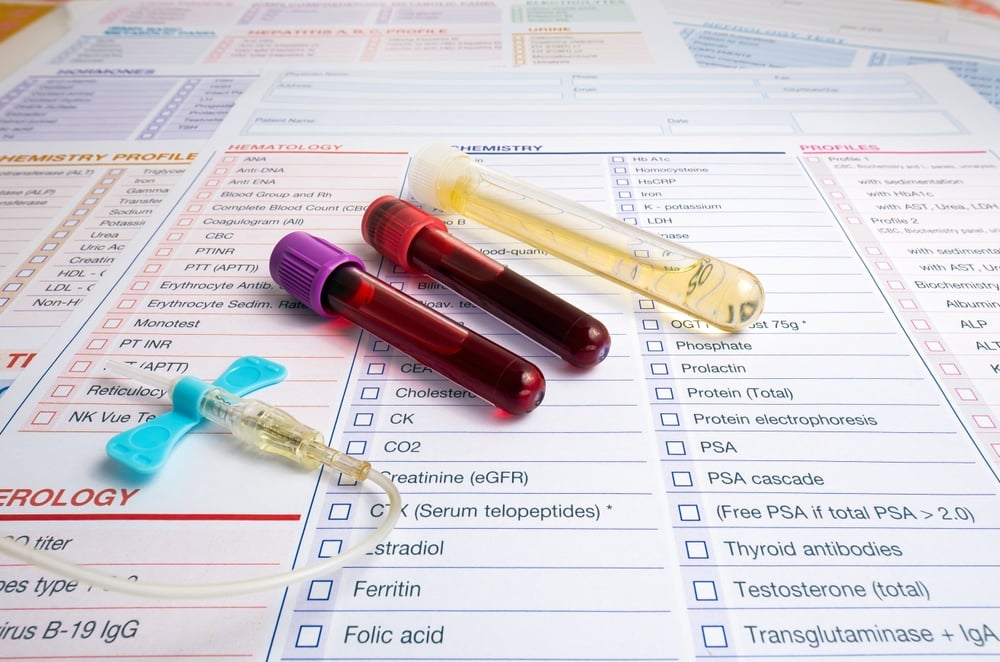
In Step 2, they narrowed down this list of markers by separately validating them in another group of 40 subjects. They kept even stricter parameters of changes in anxiety, along with changes in the biomarkers. This was their “validation” group. They came down to a list of 95 biomarkers, known as BioM-95.
Finally, they used these 95 biomarkers to predict levels of anxiety in 197 subjects. This was their final “test” group. They looked at the measured levels of these biomarkers over 14 years of medical record data to see how they change in conjunction with the person’s change in anxiety levels. They narrowed down this list to 19 top candidate biomarkers.
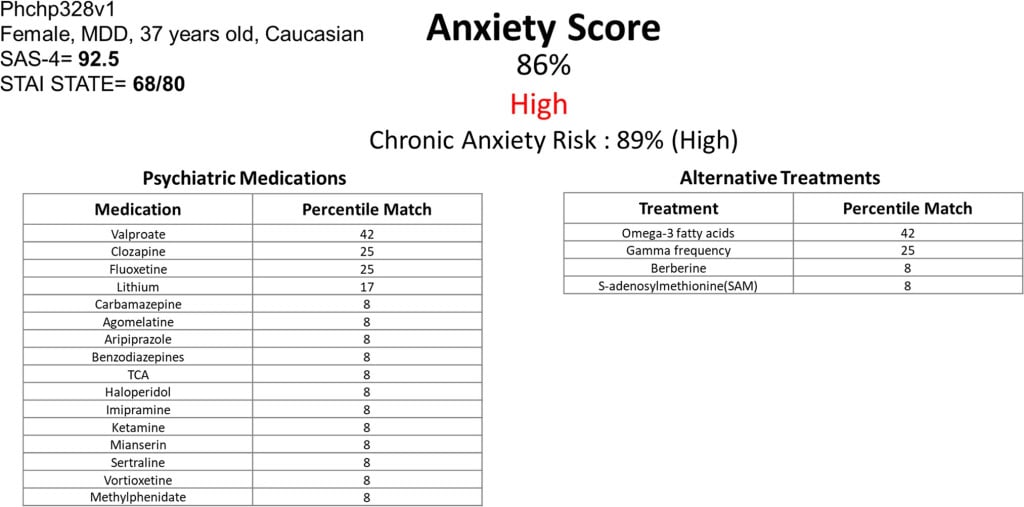
My Anxiety Has A Number, Now What?
The importance of Niculescu’s study is not to replace adjectives like “very high” or “really bad” for your anxiety levels with a number!
With the biomarker panel they developed, they have given clinicians the ability to predict high or clinical levels of anxiety in people. This will provide a more objective way of diagnosing anxiety. These markers can also help in monitoring these levels during treatment.
The researchers note in their paper, “In practice, every new patient tested would be normalized against the database of similar patients already tested, and compared to them for ranking and risk prediction purposes […]”
Another interesting possibility is that these biomarkers can now help to match patients with relevant medications. Until now, the treatment of anxiety disorder involved a trial-and-error method of the various drugs available until you landed on the most effective, which could take a long time. Now, the levels of a person’s biomarkers will hint at which of the many available drugs will be most effective.
What Do I Take Home?
Anxiety disorder has become one of the most common mental health illnesses, affecting 40 million people in the US alone. To date, without adequate tests for diagnosis, monitoring, or prescribing medications, dealing with anxiety disorder has been a difficult task for most clinicians.
Prof. Alexander Niculescu’s study is a huge milestone in combating this disorder by providing a simple blood test that will allow one to predict, diagnose, monitor, and even prescribe adequate drug treatments!
References (click to expand)
- Roseberry, K., Le-Niculescu, H., Levey, D. F., Bhagar, R., Soe, K., Rogers, J., … Niculescu, A. B. (2023, March 7). Towards precision medicine for anxiety disorders: objective assessment, risk prediction, pharmacogenomics, and repurposed drugs. Molecular Psychiatry. Springer Science and Business Media LLC.
- Steimer, T. (2002, September 30). The biology of fear- and anxiety-related behaviors. Dialogues in Clinical Neuroscience. Informa UK Limited.
- Anxiety - StatPearls.
- Baker, A., Simon, N., Keshaviah, A., Farabaugh, A., Deckersbach, T., Worthington, J. J., … Pollack, M. P. (2019, December). Anxiety Symptoms Questionnaire (ASQ): development and validation. General Psychiatry. BMJ.




